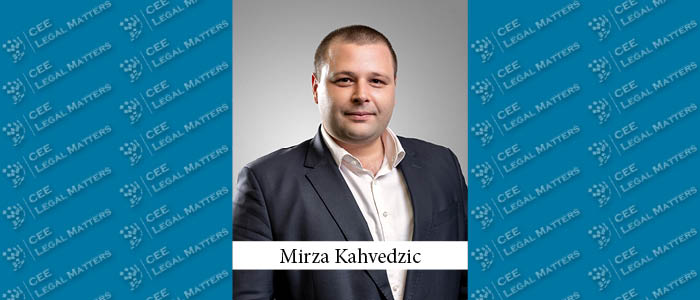ESG has long been considered a niche concept, especially in Bosnia and Herzegovina. However, over time the picture has completely changed and the market has not only mastered the meaning of ESG, but a large number of companies have adapted their business to all or rather most of environmental, social, and governance principles.
Both under the influence of globalization and due to the influx of investments, the concept of ESG is becoming an increasingly important topic for every legal entity on the market, and those businesses that fall behind will risk staying behind.
If we take into account that EOS Bosnia and Herzegovina is a member of the EOS Group, which is a leading technology-driven investor in receivables portfolios and an expert in the processing of outstanding receivables, operating on the global market for 50 years, the question of whether to implement ESG principles in practice is a no-brainer. It is easy to conclude that the mastery of this concept and its implementation for our local company was certainly under the great influence of our owner – the Hamburg-based EOS Group. To substantiate the level of seriousness of this topic, I will mention that, in 2023, EOS Group received an ESG rating from the renowned rating agency Morningstar Sustainalytics and was given a risk of 10.2, which puts EOS Group among the top 2% in the consumer finance sector.
Belonging to a large family that operates on the global market certainly exposed the local team to solid know-how and sharing of experiences and best practices. Research has shown that more than 80% of investors take into account the company’s ESG standard when considering potential investments, so I can certainly conclude (looking at the emerging interest banks and local companies on the Bosnian market show for this topic) that nowadays companies that do not adapt their operations and business to environmental and social standards cannot expect to be successful in any serious market. ESG has left the sphere of “nice to have” and has become a “must have.”
Our company has recognized the importance of ESG for a long time, and in this direction, we established a compliance department a few years ago that independently, and under the influence of our group’s good practices, implemented many concepts in the company’s management that support ESG principles.
Despite our company not being a financial institution or an entity that must implement certain systems prescribed by the Law on Prevention of Money Laundering and Financing Terrorist Activities, we decided to – although we have no strict legal obligation – implement appropriate systems and procedures that support this legislation. We have an internal system of records of all business entities and third parties that are subject to checks before business cooperation can be established. At the same time, we have a system of flagging certain transactions that, given the nature or identity of the participants, require additional checks that may result in a ban on entering into a business relationship.
Our group is a member of the UN Global Compact (UNGC) – a framework in which companies engage in order to safeguard and enact universal principles in the areas of human rights, labor, environment, and anti-corruption. As such, we especially take care to apply without exception principles of the UNGC, and this includes, among other things, our self-imposed aspiration to only work with partners and clients who pass our KYC checks and for which we have no indication of any human rights violations.
We also undertook certain activities in order to support the “E” (environmental) aspect to the greatest extent possible. We fully implemented the qualified electronic signature within the company last year. The e-signature implementation, in addition to simplifying day-to-day work, significantly reduces the use of paper. Unfortunately, the legislative system in BiH does not currently support solutions for electronic communication with courts and the use of paper in that regard is still present, however, the plans of our compliance department for this year include an initiative to engage a paper recycling company that would deal with the recycling of paper. At the same time, the previously mentioned KYC/BPS checks are fully automated and paperless.
Our compliance department plans to implement a system by which existing technical equipment (e.g., computers) whose depreciation period has expired but that are still in working condition would be donated to charitable organizations or those who may need computers (e.g., schools). Going “green” was also marked this year with the donation of a solar bench to the town and citizens of the city of Ljubuski, which is environmentally friendly and at the same time shows our company’s efforts to demonstrate the application of good standards required by ESG with practical examples.
Lastly, I cannot help but point to the Finlit foundation as the first non-profit organization of the EOS Group. The Finlit ManoMoneta educational initiative has already reached more than 100,000 children aged 9 to 13 with the aim to make children more aware of the right way to handle money and, in doing so, help counter excessive personal debt.
To finish as I have started: ESG implementation is no longer simply “nice to have,” but rather a “must have,” and I am personally grateful for the great work our local compliance team is doing in this segment.
By Mirza Kahvedzic, Executive Director for Legal Affairs, EOS Matrix Bosnia and Herzegovina






















